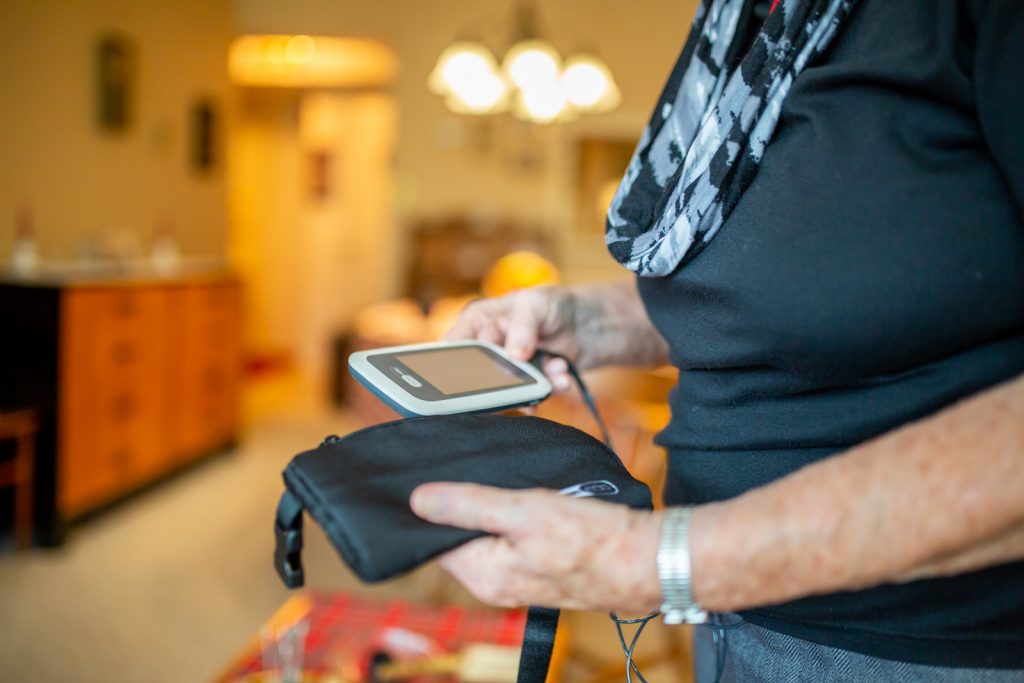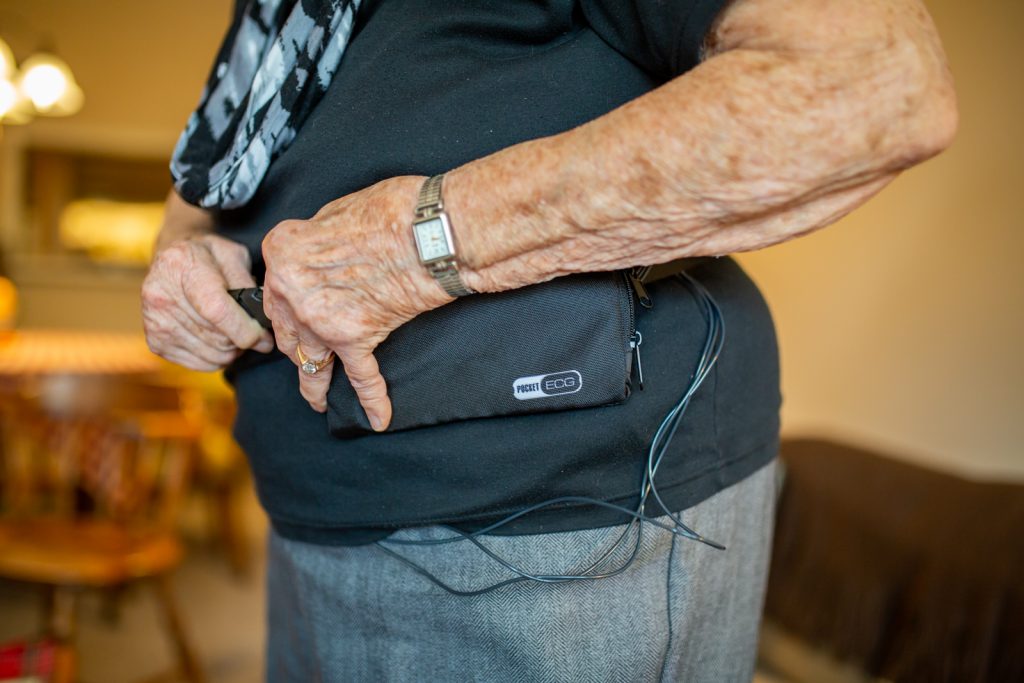
New technology detects abnormal heart rhythms
Beverly Herridge, 82, was preparing for a knee replacement when she was told she needed surgery to repair a leaky aortic valve that was taxing her heart.
Doctors at Hamilton Health Sciences’ Hamilton General Hospital (HGH) performed a minimally invasive transcatheter aortic valve implantation (TAVI) in July 2017. Beverly was under conscious sedation while a surgeon used an X-ray to guide a catheter inserted in her groin. When it reached her heart, doctors inflated a balloon to remove the degenerated valve and guide a new valve into place.
TAVI is a highly effective alternative to open heart surgery for medically frail patients or those with complicating factors, says Dr. Madhu Natarajan, site director for cardiology at HGH. Open heart surgery is done under a general anesthetic and requires stopping the heart and placing the patient on cardiopulmonary bypass. Patients are hospitalized for five to 10 days.
“This is almost an early warning system so that before patients develop symptoms, we can see episodes of abnormal heart rhythms.”
As the largest heart surgery program in Ontario, and a regional centre of excellence for cardiac care, HGH surgeons perform TAVIs on a regular basis. Three-quarters of these patients go home just one day after surgery.
Beverly recovered in hospital for just a few days before agreeing to go home wearing a portable heart monitor so that doctors could track her heart function remotely. “I felt better in my own surroundings and that freed up a bed,” says the Burlington resident. “I am a worrier, but I wasn’t worried about that. I felt good they were watching me.”
The remote monitor collected round-the-clock data that nurses and doctors examined several times daily. It showed a concerning arrhythmia in Beverly’s heart, a complication that affects about 20 per cent of TAVI patients. She was called back to the HGH cardiac clinic where she had a loonie-sized pacemaker implanted that will keep her heart beating in a steady rhythm. She feels very well now and only needs checkups every six months.


“They are a great bunch in there,” Beverly says of the doctors and nurses at HGH, a regional centre of excellence for cardiac care and the largest heart surgery program in the country. “I definitely felt I was in good hands.”
Dr. Natarajan is the principal investigator on REdireCT TAVI, a clinical trial into whether remote ECG monitoring of patients before TAVI and after they go home is the answer to efficiently determining who requires a pacemaker, thereby reducing hospital stays and re-admissions.
The two-year study began in June and is being managed through the Population Health Research Institute, a joint institute of Hamilton Health Sciences and McMaster University.
“I definitely felt I was in good hands.”
“This is almost an early warning system so that before patients develop symptoms, we can see episodes of abnormal heart rhythms. Those patients then come directly back to us rather than to their local hospital or the emergency department,” said Dr. Natarajan.
Remote monitoring before TAVI surgery can also alert doctors to arrhythmia or other abnormalities that, in serious cases, can be addressed by implanting a pacemaker during the TAVI procedure.
“Whenever hospital stays are reduced or prevented, that’s better for patient comfort and recovery, and is a more cost-effective and efficient use of healthcare resources,” says Dr. Natarajan.
The project it is a program of the Ministry of Health and Long-Term Care’s Health Innovation and Strategies Branch, and is delivered by Ontario Centres of Excellence.
This is just one of the many digital health projects that are part of our Digital Health Plan.
